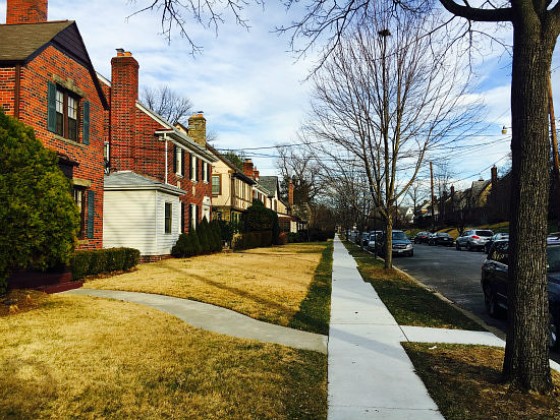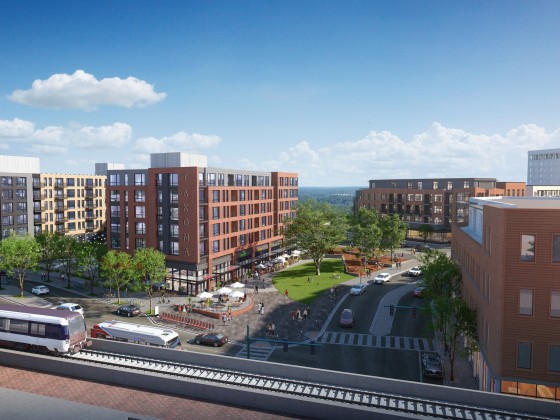What's Hot: The 4 Projects in the Works Near DC's Starburst Intersection | A 153-Room Aloft Hotel Pitched For Mt. Vernon Triangle
 How Housing, Schools and the City Work Together
How Housing, Schools and the City Work Together
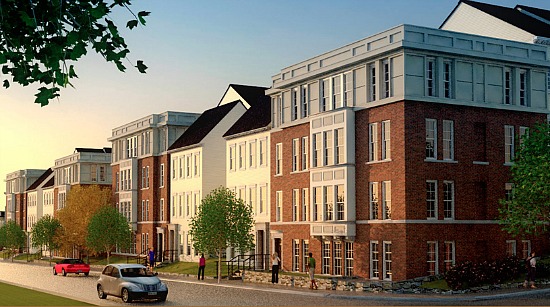
Sheridan Station, a recent W.C. Smith development.
Can a new development succeed in a neighborhood without a grocery store? Can a school be successful if the parents of the students are suffering?
On Monday night, these issues and more were discussed at a panel entitled “Stories of Community Development in DC“ at the National Building Museum. Panelists included Irasema Salcido, the founder of the Cesar Chavez Charter Schools and the DC Promise Neighborhood Initiative (DCPNI), Chris Smith, the president and CEO of W.C. Smith and Company, Ellen McCarthy, the Director of the Office of Planning under former Mayor Anthony Williams, and Chicago Tribune columnist Clarence Page.
Here are a few of the most interesting takeaways.
Development Firms Can’t Act in Isolation, Need An Appealing Neighborhood
In the 1980’s, Chris Smith observed that people were leaving the city in droves, while financing for developments was more available than ever thanks to programs like the low-income housing tax credit and Community Reinvestment Act. Simply put, just building a new residential development wasn’t going to attract buyers if the roads were full of potholes, the schools were bad and there weren’t any grocery stores nearby.
“We had to figure out more than just the brick and mortar. We partnered with schools and tried to do fiscal improvements that the city wasn’t doing,” said Smith. W.C. Smith had what they called a “DPW” (Department of Public Works map), which noted every pothole, broken fire hydrant and other public-realm problem in the area that would deter potential buyers.
Now, even as the city has been investing in DC’s revitalization for years, the collaborative efforts continue. When building a new development, Smith looks to reach out to organizations, like AppleTree Institute, an early education public charter school, or a medical center, such as the one that exists at their recent development, Sheridan Station, in order to add something more to the area.
As Land Values Rise, Affordable Housing Will Become a Bigger Issue
When the city solicits proposals for a development on city-owned land, Ellen McCarthy said, they can mandate that a certain percentage of units (20 or 30 percent) be set aside as affordable housing. They can also make other requests, such as requiring that a certain number of local residents be hired.
Smith spoke to this point, stressing the need for checks to be made to ensure that the requirements are being followed. When a new Giant supermarket agreed to hire 200 employees locally, he said, his company got the names and addresses of each employee to verify that they were really from the area.
As land values rise across DC, it is more difficult to ensure that low-income housing is being included on non-city-owned land, noted McCarthy, where tools like inclusionary zoning may be one of the only ways to create new affordable housing.
For Schools and Communities to Succeed, Families Need To Be Stable
In her work developing the Cesar Chavez schools throughout DC, Irasema Salcido came to the realization that a child would not succeed at school if their life at home was unstable. “You can’t have a successful Pre-K program without addressing middle school, without addressing high schools, and without addressing families,” said Salcido.
So, Salcido has been working to provide more services, beyond those at school, that will lead to a more stable home life. Her organization DCPNI just received a $25 million grant to implement a “two generation” model. In short, the model aims to support both the child and the parents, rather than just focusing on the child as some educational models are prone to do. “What we’re doing for the children, we’re doing for the parents as well,” Saclido said. “We’re providing the services they need so that they can stabilize.”
See other articles related to: cesar chavez, community development, ellen mccarthy, gentrification, w.c. smith
This article originally published at https://dc.urbanturf.com/articles/blog/how_housing_schools_and_the_city_work_together_takeaways_from/6869.
Most Popular... This Week • Last 30 Days • Ever

In this article, UrbanTurf looks at the estimated annual maintenance costs associated... read »
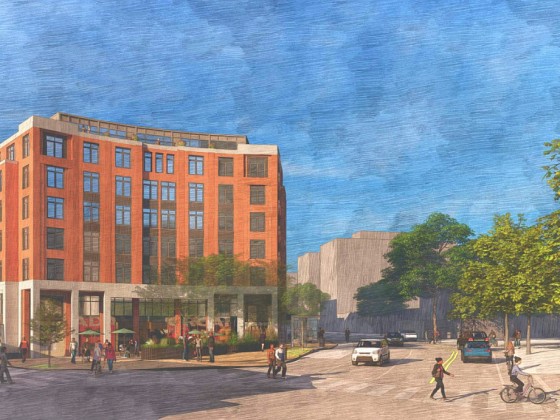
Another concept has been unveiled for one of DC's most contentious development sites,... read »
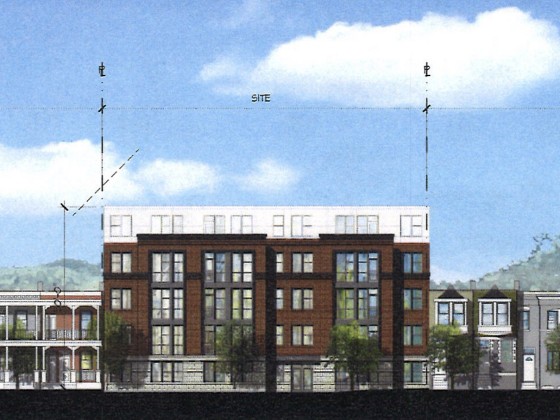
The residential development in the works along Florida Avenue NE is looking to increa... read »

Renter demand has continued to push Class A apartment rents in the DC region up this ... read »

The big news in the development pipeline east of DC's H Street Corridor is the resur... read »
- What Are the Annual Maintenance Costs When You Own a Home?
- A First Look At The New Plans For Adams Morgan's SunTrust Plaza
- 46 to 48: The Biggest Project In Trinidad Looks To Get Bigger
- How Much Did DC-Area Rents Rise At The Beginning of 2024?
- The 4 Projects In The Works Near DC's Starburst Intersection
DC Real Estate Guides
Short guides to navigating the DC-area real estate market
We've collected all our helpful guides for buying, selling and renting in and around Washington, DC in one place. Start browsing below!
First-Timer Primers
Intro guides for first-time home buyers
Unique Spaces
Awesome and unusual real estate from across the DC Metro







